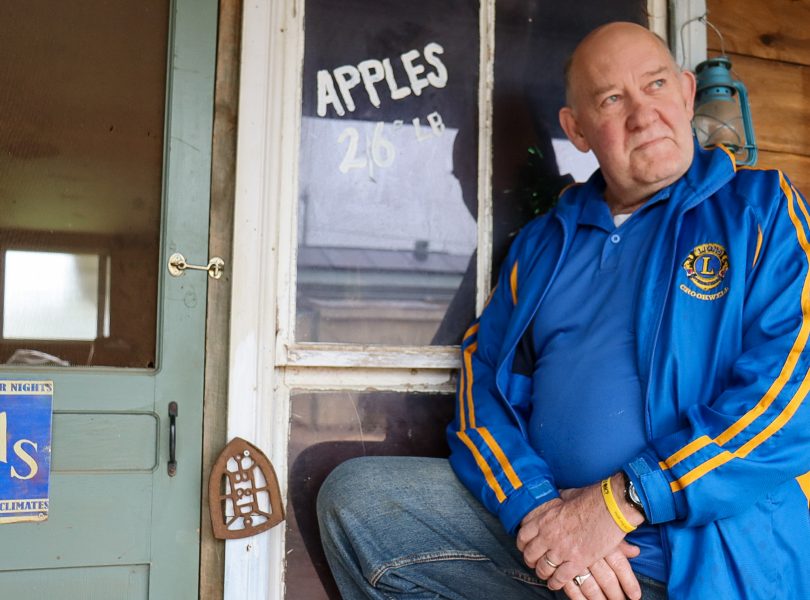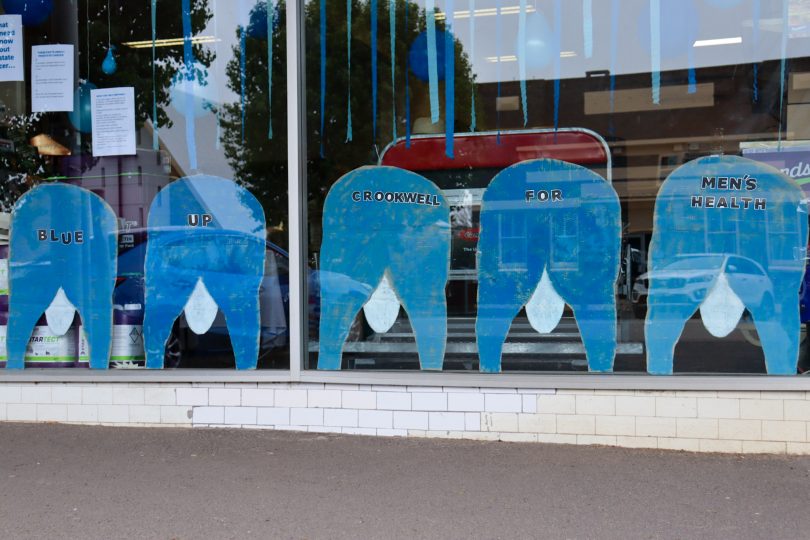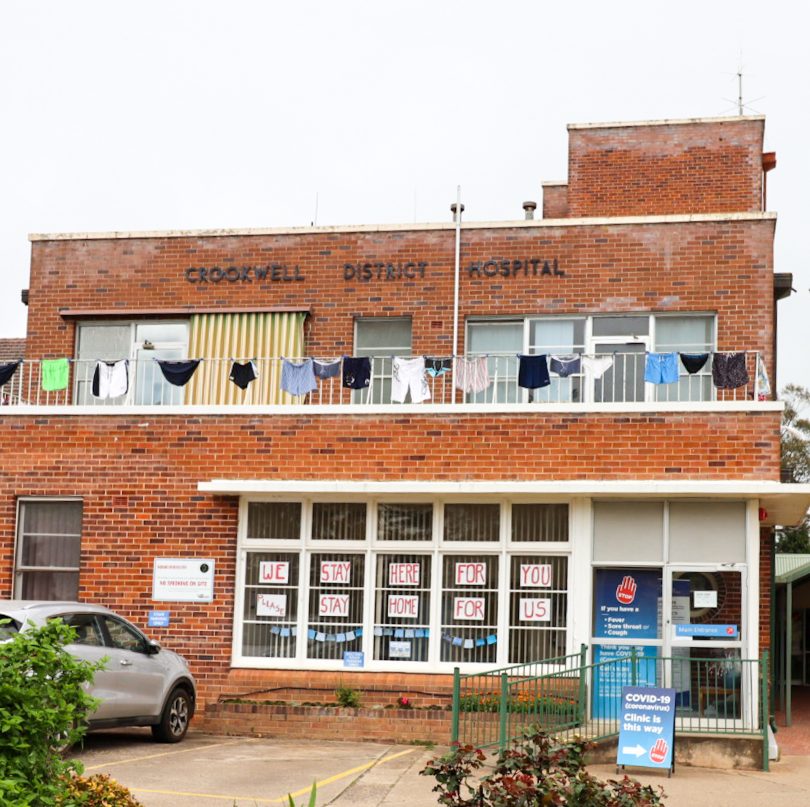
Cancer survivor Brent Hall’s hometown of Crookwell is turning blue this October to raise awareness for men’s health, particularly prostate cancer. Photo: Hannah Sparks.
Brent Hall tells me he didn’t sleep well last night as we take a seat in the living room of his Crookwell home. It’s not often the 63-year-old receives a visit from a journalist.
“It’s silly, I know,” he says. “I don’t know what I’m actually worried about.”
Brent has experienced anxiety and depression for most of his life, attributing it to the anxiety and depression his late father – a veteran – experienced.
Trips to Goulburn, an hour from Crookwell, can be anxiety-provoking for Brent. So the idea of travelling back and forth to Canberra for prostate cancer treatment in 2012 wasn’t easy.
However, he knew he had to get on with it. His friend, Stephen, was diagnosed with terminal prostate cancer at the age of 47.

Crookwell is turning blue during October to raise prostate cancer awareness. Photo: Hannah Sparks.
Stephen had experienced painful sex and was tested for prostate cancer, but the positive diagnosis came too late.
“It had already spread into his bones and lymph nodes,” says Brent. “He had never been tested before.”
Stephen died seven years later, aged 54.
Painful sex can be a symptom of prostate cancer, although some men will experience no symptoms. Other symptoms can include feeling the frequent or sudden need to urinate; finding it difficult to urinate; discomfort when urinating; finding blood in urine or semen; and pain in the lower back, upper thighs or hips.
Brent, on the other hand, had his prostate checked every six months from the age of 50. It’s recommended that men are tested every two years from the age of 50, or from the age of 40 for men with a family history of prostate cancer.
“It was common sense,” he says. “Prostate cancer is out there and I fell into the age category that can get it. In my mind, it’s the same as a woman having a pap smear or giving birth.”
At the age of 55, Brent’s blood test showed his prostate-specific antigen (PSA) had risen to 4.9, compared to his PSA of 0.02 now.
The PSA test and digital rectal exam (DRE) are two ways a doctor can detect and diagnose prostate cancer. However, a high PSA test result does not always mean cancer, and a normal DRE result does not always rule out cancer.
“My doctor sent me for a biopsy and the test came back positive for cancer,” says Brent. “After the diagnosis, I was sent to Canberra for an X-ray of my pelvic area. I was lucky the cancer was contained to the prostate and had not escaped to the lymph nodes.”

Crookwell District Hospital hangs men’s undies outside to raise prostate cancer awareness. Photo: Hannah Sparks.
He was referred to an oncologist who suggested the brachytherapy procedure, which places radioactive seeds into the prostate to kill the cancer cells while healthy tissues nearby experience less damage.
The procedure was done three times over two days, then Brent was able to return home.
A month later, he returned for external beam radiation therapy over the pelvic area to kill any cancer cells that may have spread outside the prostate, but weren’t picked up on the X-ray.
Brent’s two brothers were also subsequently diagnosed with prostate cancer. One was treated with robotic surgery – a more precise and less invasive procedure – while the other opted for the complete removal of his prostate.
Brent wants men to know there is a range of treatment options for prostate cancer, but above all, he wants men to realise the importance of early diagnosis and treatment.
“All three of us were diagnosed with prostate cancer and all three of us are cancer-free because we listened to our doctor and had regular check-ups,” he says.
“Please get tested – it saved my life.”
This is the message Brent has overcome many fears to share.
“It’s worse in the country,” he says. “We often say, ‘She’ll be right, mate.’ Men don’t talk about this stuff, but we know prostate cancer kills about 3000 men a year – that’s more than breast cancer does. I want men to take notice.”
This October, Brent’s hometown of Crookwell is turning blue to raise awareness for men’s health, particularly prostate cancer.
The Blue Up Crookwell campaign by Crookwell Hospital Community Consultation Committee encourages businesses to decorate, hold morning teas and locals to dress up in blue. It follows the successful Pink Up Crookwell in October 2019 for breast cancer.
Brent is a member of Crookwell Lions Club, which has jumped behind the cause and is donating proceeds from its annual wood raffle outside Crookwell IGA on 23 October to the Prostate Cancer Foundation Australia.
Original Article published by Hannah Sparks on About Regional.












